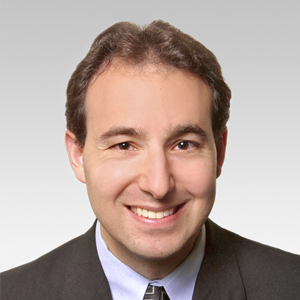
A novel deep brain stimulation device significantly improved quality of life for patients with advanced Parkinson’s disease while also reducing physical side effects from medication, according to findings from a clinical trial recently published in The Lancet Neurology.
Deep brain stimulation presents numerous benefits for Parkinson’s disease patients, including a reduction in dyskinesia, or uncontrolled involuntary muscle movements, which is a common side-effect of medications that help manage the neurological impact of the disease.
“Deep brain stimulation can lead to a very significant improvement in terms of what a person’s everyday life looks like; they have better symptom control with fewer medications and more reliability,” said Joshua Rosenow, MD, director of Functional Neurosurgery, professor in the Department of Neurosurgery and a co-author of the study.
The most common area of the brain to target with deep brain stimulation for symptoms of Parkinson’s is the subthalamic nucleus, located at the base of the brain. Previous studies have shown that targeting this region can help reduce the amount of medications a patient must take while improving their overall symptom control and quality of life.
For the current study, the investigators assessed deep brain stimulation of the subthalamic nucleus, with a novel multiple independent contact current controlled (MICC) device, in patients with Parkinson’s disease.
What makes the MICC device superior to previous devices, according to Rosenow, is that the device’s independent electrical current sources can be used to more precisely to target exact areas in the brain that produce clinical benefits while reducing the amount of electricity reaching areas where stimulation may produce unwanted side effects. Unlike previous devices with batteries that had to be switched out every two to five years, the MICC device’s rechargeable battery lasts over a decade, reducing the amount of times patients with the device must undergo surgery to have the battery changed.
“The older programming was very blunt, and we did great things with it for 30 years, but we’re smarter than that now. This study was getting us along that pathway to smarter deep brain stimulation,” said Rosenow, who is also a professor of Neurology and of Physical Medicine and Rehabilitation.
For the trial, participants with Parkinson’s disease from 23 implanting centers across the U.S. were randomly assigned to receive either active therapeutic stimulation settings or no stimulation settings for the three-month trial period.
At the end of three months, the investigators observed a decrease in serious adverse events, specifically a reduction in dyskinesias, in participants who received active therapeutic stimulation settings from the device, which received FDA approval due to these findings.
Currently, the third generation of the device is being used in clinical settings, yet deep brain stimulation continues to remain severely underutilized by Parkinson’s patients who may greatly benefit from the treatment, according to Rosenow.
“Patients don’t reach out to Parkinson’s neurologists who manage and know how to properly select people for the device. Brain surgery is also big deal, and I think a lot of people dismiss it for being very imposing to them, but we’re always happy to help teach people who are interested about the surgery so they can make a decision with all the proper information,” Rosenow said.
This study was funded by Boston Scientific.






